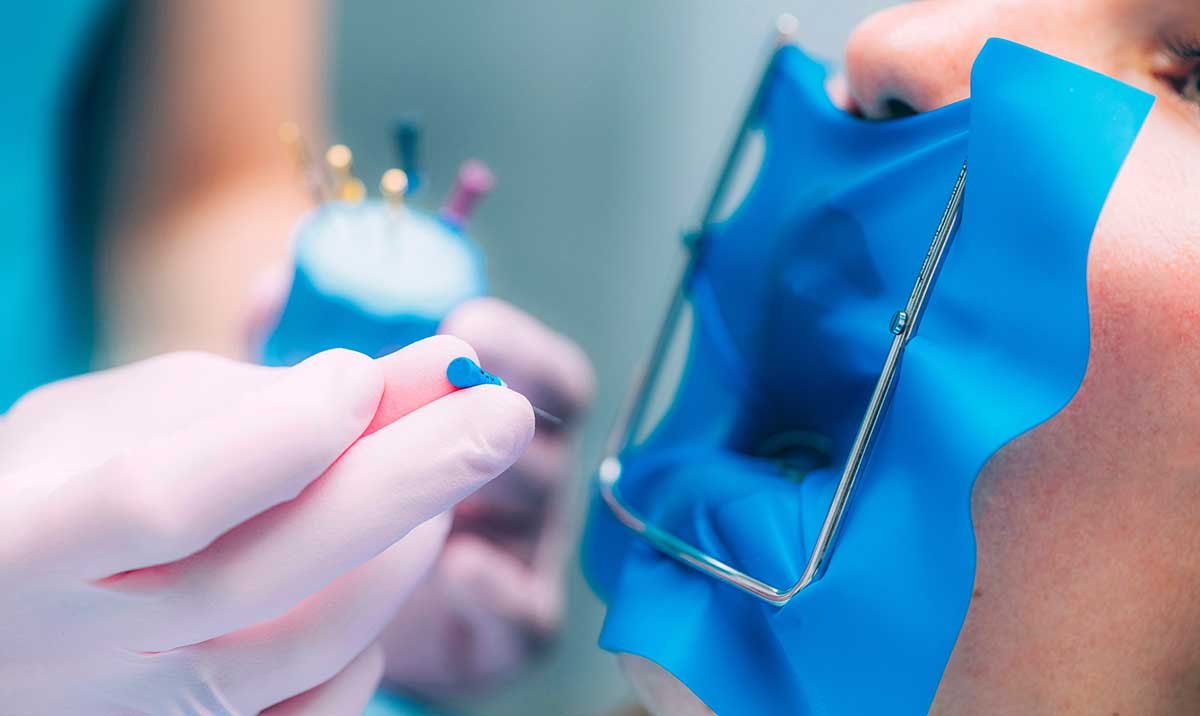If you are considering a root canal procedure, it is important to know how long the healing process takes. Root canal therapy is a common dental procedure designed to remove damaged or infected tooth pulp. The length of time it takes for your root canal to heal can vary depending on several factors, including the extent of the damage and your overall health. In this article, we will explore the timeline for healing after a root canal and offer tips for managing any discomfort during the recovery period.
Understanding the Healing Time for Root Canals and Dental Implants
Understanding the Healing Time for Root Canals and Dental Implants is crucial to ensure successful treatment outcomes in implant dentistry. After placement, Dental Implants require time to heal and integrate with the surrounding bone tissue through a process called osseointegration. The healing time for Dental Implants varies depending on several factors, including the patient’s overall health, the location of the implant, and the quality and quantity of bone tissue available. Generally, healing time can range from a few weeks to several months. Similarly, the length of time required for Root Canal Therapy to heal can also vary. In some cases, patients may experience pain and discomfort for several days following treatment, but this should subside over time. Overall, it is important for patients to understand the healing process for both Root Canals and Dental Implants to ensure proper care and maintenance during this critical period.
What is the expected recovery time for a fully healed root canal?
The expected recovery time for a fully healed root canal can vary depending on several factors. Generally, the initial recovery period after a root canal procedure involves some discomfort and sensitivity in the affected area for a few days to a week. Patients are advised to avoid hard or chewy foods during this time and to take any prescribed pain medication as directed.
However, it can take up to several months for the root canal site to fully heal. During this time, the patient may experience some occasional soreness or sensitivity in the area. It is important to continue with good oral hygiene practices, such as brushing and flossing regularly, to prevent future infections.
Additionally, if the root canal procedure is done as part of the process of getting Dental Implants, the recovery time will also depend on the timeline and success of the implant surgery. It is important to follow all aftercare instructions provided by your dentist or oral surgeon to ensure proper healing and a successful outcome.
What is the typical timeframe for pain relief after having a root canal procedure?
The typical timeframe for pain relief after having a root canal procedure varies from person to person. Some patients may experience immediate relief after the procedure, while others may experience mild discomfort for a few days. In most cases, over-the-counter pain medication can help alleviate any discomfort. Your dentist may also prescribe antibiotics and advise you to avoid certain foods and drinks for a period of time. If you continue to experience pain or swelling, it’s important to contact your dentist promptly as this may indicate an infection or other complication. Overall, it’s important to follow your dentist’s instructions for post-operative care to ensure a speedy recovery and successful outcome after a root canal procedure.
What are the indications of an unsuccessful root canal?
Unsuccessful root canal is a dental condition that occurs when the infected or damaged tooth nerve was not completely removed during the initial root canal procedure. This leads to persistent pain, discomfort, and other oral health problems. Here are some indications of an unsuccessful root canal:
1. Persistent pain: Patients who undergo a failed root canal often experience persistent pain around the affected tooth, especially when chewing or biting down.
2. Swelling and tenderness: A swollen or tender area around the treated tooth may be an indication of a failed root canal.
3. Gum infection: Infection of the gums is also common in cases where the root canal treatment was not successful.
4. Discoloration: An untreated tooth may begin to discolor over time, which is a sign of a failed root canal.
5. Recurrent decay: Recurrent decay around the treated tooth may be a sign of a failed root canal.
If you experience any of these indications, it is important to seek immediate dental treatment to prevent further damage to your oral health. In some cases, removing the tooth and getting a dental implant may be necessary to fully restore your dental health.
What are some things that should be avoided after getting a root canal?
After getting a root canal, there are certain things that should be avoided to ensure proper healing and avoid complications.
Firstly, avoid eating hard or crunchy foods for the first few days, as this can put pressure on the treated tooth and cause pain. Additionally, avoid consuming hot or cold foods, as the treated tooth may be sensitive to extreme temperatures.
It’s also important to avoid smoking or using tobacco products, as these can delay healing and increase the risk of developing an infection. Avoid chewing on the treated tooth until it has been fully restored with a permanent filling or crown.
Finally, be mindful of your oral hygiene and avoid brushing too aggressively around the treated area to prevent any irritation or discomfort. Follow your dentist’s post-operative instructions carefully to ensure proper healing and to minimize any potential complications.
Frequent Questions
How does getting a dental implant after a root canal affect healing time?
Getting a dental implant after a root canal can shorten the overall healing time. Root canal treatment is necessary when the inner pulp of a damaged tooth becomes infected or inflamed. This process involves removing the diseased tissue and filling the resulting cavity with a material to prevent further infection. After the root canal, the tooth may be weakened and require a crown or other restoration to protect it from future damage.
A dental implant is a permanent replacement for a missing tooth that consists of a titanium post and a crown. In some cases, the implant can be placed immediately after the root canal procedure. The implant acts as a new root for the tooth, providing stability and support for the restoration.
By combining the root canal and dental implant procedures, the overall healing time can be reduced. This is because the patient only needs to undergo one surgical procedure, reducing the amount of time needed for recovery. Additionally, the implant will help preserve the bone in the jaw by providing the necessary stimulation to prevent resorption.
Overall, a dental implant can be a beneficial option for patients who have undergone a root canal by reducing healing time and providing a long-term solution for the damaged or missing tooth. It is important to consult with a qualified dental professional to determine if this is the best option for your individual case.
Are there any factors that can speed up or slow down the healing process after a root canal and subsequent dental implant?
Yes, there are several factors that can affect the healing process after a root canal and subsequent dental implant placement.
Factors that can speed up the healing process include following proper oral hygiene practices, quitting smoking, eating a healthy diet, and avoiding alcohol during the healing period. Additionally, taking any prescribed antibiotics or pain medications as directed can also aid in the healing process.
On the other hand, certain factors can slow down or even prevent proper healing after a root canal and dental implant procedure. These factors include smoking, poor oral hygiene practices, systemic health conditions such as diabetes, and a compromised immune system. Additionally, physical trauma or infection at the implant site can also interfere with proper healing.
It is important to discuss any concerns or questions about the healing process with your dentist or oral surgeon to ensure the best possible outcome.
Can patients expect a longer or shorter healing time for a dental implant if they have previously undergone a root canal procedure?
Patients who have previously undergone a root canal procedure can generally expect a longer healing time for a dental implant compared to those who haven’t. This is because root canal treatment involves removing the infected or damaged pulp of a tooth, which can weaken the surrounding bone and affect the success of an implant. The implant needs a solid base of healthy bone to integrate properly and support the new tooth. Therefore, additional procedures such as bone grafting may be necessary to ensure there is enough bone mass for successful implant placement. Overall, the healing time for a dental implant after a root canal procedure may take longer, but it is still a highly effective option for restoring missing teeth.
In conclusion, healing after a root canal can take time but it largely depends on the individual. Factors such as the extent of the infection, the patient’s overall health, and following proper aftercare instructions all play a role in the speed of recovery. As with any dental procedure, it is important to consult with your dentist to address any concerns and ensure the best possible outcome. With their guidance and care, the healing process can be as smooth and efficient as possible. Ultimately, taking care of your oral health through regular dental checkups and good oral hygiene practices is key to preventing future dental issues and ensuring a healthy smile.



